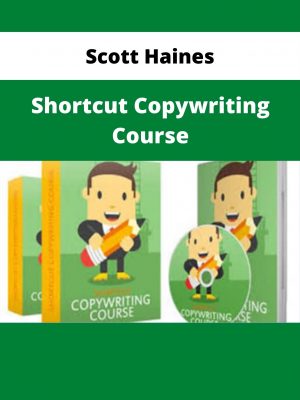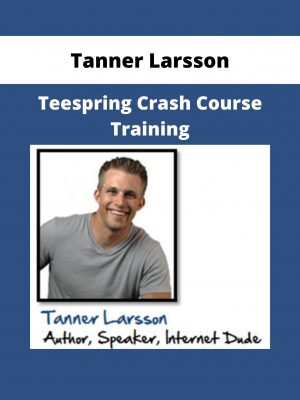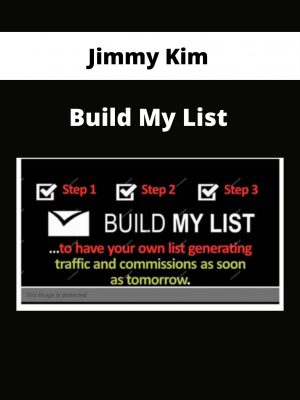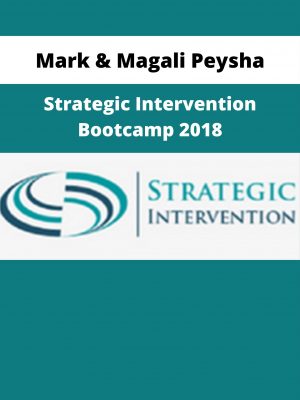Michael Tsai – Interview Pro Course
$250 Original price was: $250.$56Current price is: $56.
Shopping Instructions:
- DISCOUNT 15% : SHOP15
- Product Delivery: Within 1 – 12 hours after purchase.
Everything you need to stand out in your upcoming medical school interview
Michael Tsai – Interview Pro Course
Course Curriculum
MODULE 1: READY, SET, GO – BREAKING DOWN THE INTERVIEW
-
Lesson 1: Transforming you into an interview superstar (5:44)
-
Lesson 2: How to use this course effectively (6:37)
-
Lesson 3: What is an medical interview? (10:21)
-
Lesson 4: How do interviews assess candidates? (8:48)
-
Lesson 5: Why interview preparation needs to be different (13:08)
-
Lesson 6: Differences in interview formats: MMI vs semi-structured (11:18)
-
Lesson 7: Key considerations and attitudes when preparing (3:50)
MODULE 2: CREATING CONTENT FOR YOUR RESPONSES
-
Lesson 1: What is content? (9:11)
-
Lesson 2: Why is content creation the most important step of all? (9:06)
-
Lesson 3: Selection Criteria: aligning your content creation process (list of desirable traits) (5:54)
-
Lesson 4: How authenticity is crucial to your preparation and performance (10:26)
-
Lesson 5: Stages of content creation – Recall, Define, Explain, Focus (14:06)
-
Stage 1: Recall the event(s)
-
Stage 2: Define the criteria (i.e. attribute, skill, value)
-
Stage 3: Explain its function
-
Stage 4: Focus on relevant examples
-
Lesson 6: Time to create your own high-value and authentic content (CONTENT CREATION WORKSHEET) (2:53)
-
Lesson 7: Two ways to check whether your content is up to scratch (10:00)
-
ACTION: Submitting your content for personal feedback (MUST-DO STEP BEFORE CONTINUING ON TO NEXT MODULE)
-
MODULE 1: PROGRESS CHECK POINT
MODULE 2.5 – ADDITIONAL MUST-READ RESOURCE FOR EVERYONE
-
Cole’s Medical Practice – To give you inspiration for content creation + build knowledge of interview topics
MODULE 3: IDENTIFYING OPPORTUNITIES, CONTENT SELECTION, STRUCTURE SELECTION
-
Introducing the three key cognitive skills of a successful interviewee
-
Skill 1: What are opportunities? (5:24)
-
What makes finding opportunities so important when planning your response? (7:53)
-
Steps to identifying opportunities in interview questions: Remember, Analyse, Identify (6:45)
-
Step 1: Remember your program’s selection criteria (6:54)
-
Step 2: Analyse the question (14:31)
-
Step 3: Identify two to three opportunities (6:50)
-
Identifying opportunities – Exemplars (91:05)
-
Skill 2: Content Selection and contentious (ethical) issues readings
-
Event-specific question exemplars (Remember, Summarise, Isolate, Identify) (6:00)
-
Practice quiz 2 recommendations: event-specific questions (semi-structured format)
-
**MUST DOWNLOAD** Module 2, 3, 4, 5 practice worksheet and how to use them
-
Conflict-based question exemplars (Remember, Summarise, Isolate, Identify)
-
Practice quiz 3 recommendations: conflict=based questions (semi-structure format)
-
Contentious topics question exemplars (Remember, Summarise, Isolate, Identify)
-
Practice quiz 4 recommendations: contentious topics question (semi-structure format)
-
Scenario-based question exemplars (Remember, Summarise, Isolate, Identify)
-
Practice quiz 5 recommendations: sencario-based question (MMI format)
-
Role play question exemplars (Remember, Summarise, Isolate, Identify)
-
Practice quiz 6 recommendations: role play questions (MMI format)
-
MODULE 2 PROGRESS CHECK POINT
MODULE 4: SELECTING THE BEST CONTENT FOR YOUR ANSWER
-
What is content selection and why is it important?
-
Scenario-based question style – content selection guidelines
-
Contentious (ethical) question style – content selection guidelines
-
Conflict-specific/event-specific question style – content selection guidelines
-
Personal question style – content selection guidelines
-
SKILLS WORKSHEET: Scenario-based question practice (21 questions)
-
SKILLS WORKSHEET: Contentious (ethical) question practice (22 questions)
-
SKILLS WORKSHEET: Conflict-specific question practice (20 questions)
-
SKILLS WORKSHEET: Event-specific question practice (23 questions)
-
SKILLS WORKSHEET: Personal-style question practice (23 questions)
Get immediately download Michael Tsai – Interview Pro Course
MODULE 5: ADOPTING THE MOST EFFECTIVE STRUCTURE
-
What is structure and why is it so important?
-
The layers of a good structure: Burger Model (33:59)
-
Completion of the three cognitive skills and the next steps in preparation
-
Contentious (ethical) question style – structure selection guideline
-
Conflict-specific/event-specific question style – structure selection guideline
-
Personal-based question style – structure selection guideline
-
Practice quiz 2: event-specific questions (semi-structured format)
-
Conflict-based question exemplars (Introduction, Body, Conclusion)
-
Practice quiz 3: conflict=based questions (semi-structure format)
-
Contentious topics question exemplars (Introduction, Body, Conclusion)
-
Practice quiz 4: contentious topics question (semi-structure format)
-
Scenario-based question exemplars (Introduction, Body, Conclusion)
-
Practice quiz 5: scenario-based question (MMI format)
-
Role play question exemplars (Introduction, Body, Conclusion)
-
Practice quiz 6: role play questions (MMI format)
-
MODULE 4 PROGRESS CHECK POINT
MODULE 6: THE ART OF DELIVERING AN ENGAGING RESPONSE
-
How this module will help you deliver better answers
-
What makes a response engaging? (CHECKLIST)
-
Scenario-based question exemplars
-
Contentious topics question exemplars
-
Common issues encountered when delivering responses and how to fix them
-
How to practice delvering responses
-
Personal style question exemplars
-
Event-specific question exemplars
-
Conflict-based question exemplars
-
Role play question exemplars
-
How to receive feedback
-
MODULE 5 PROGRESS CHECK POINT
-
New Lecture
Additional Resources
-
Aboriginal health – what issues, how they arise and proposed solutions
-
Rural health – what issues, how they arise and proposed solutions
-
Health agendas in Australia – National Primary Healthcare Strategic Framework
-
Role Play Overview and Strategies
-
New Zealand med school specific information
-
New Lecture
Transition to the New Learning Management System
-
Transition to the New Learning Management System
Read more: https://archive.ph/Orkkm
Related products
Sale!
Business & Sales
Rated 5.00 out of 5
Sale!
Business & Sales
Rated 5.00 out of 5
Sale!
Business & Sales
Rated 5.00 out of 5
Sale!
Business & Sales
Rated 5.00 out of 5
Business & Sales
Sale!
Business & Sales
Rated 5.00 out of 5
Sale!
Business & Sales
Rated 5.00 out of 5
Sale!
Business & Sales
Rated 5.00 out of 5












